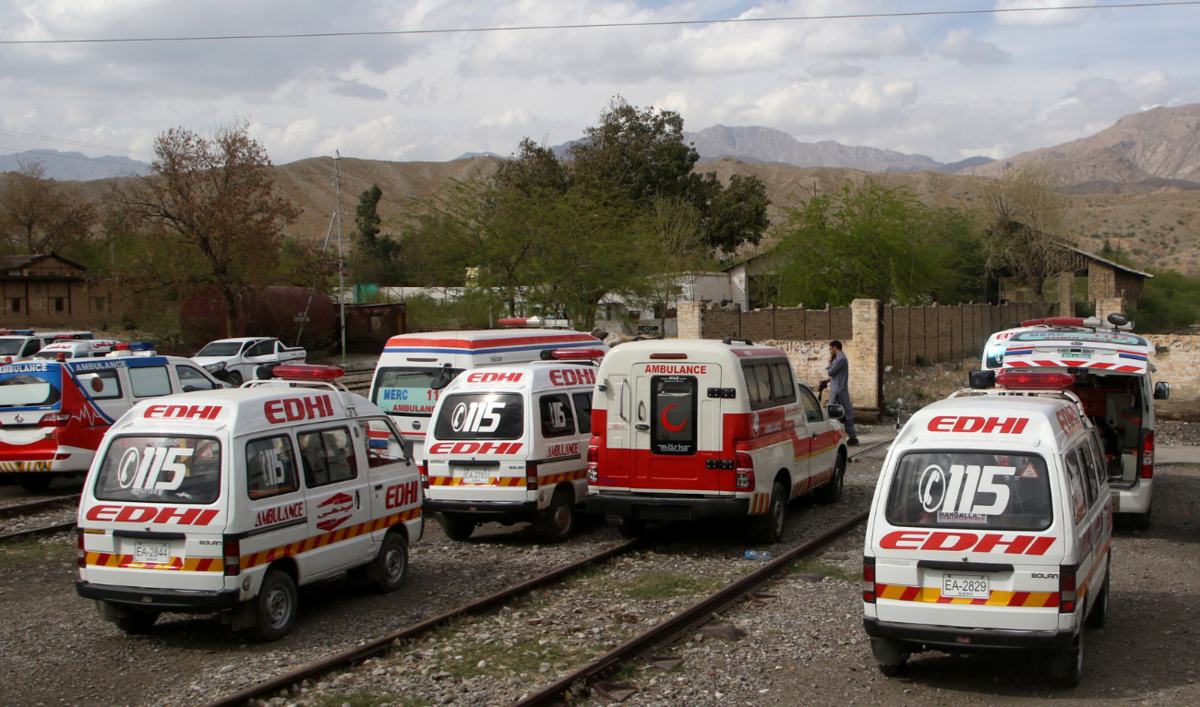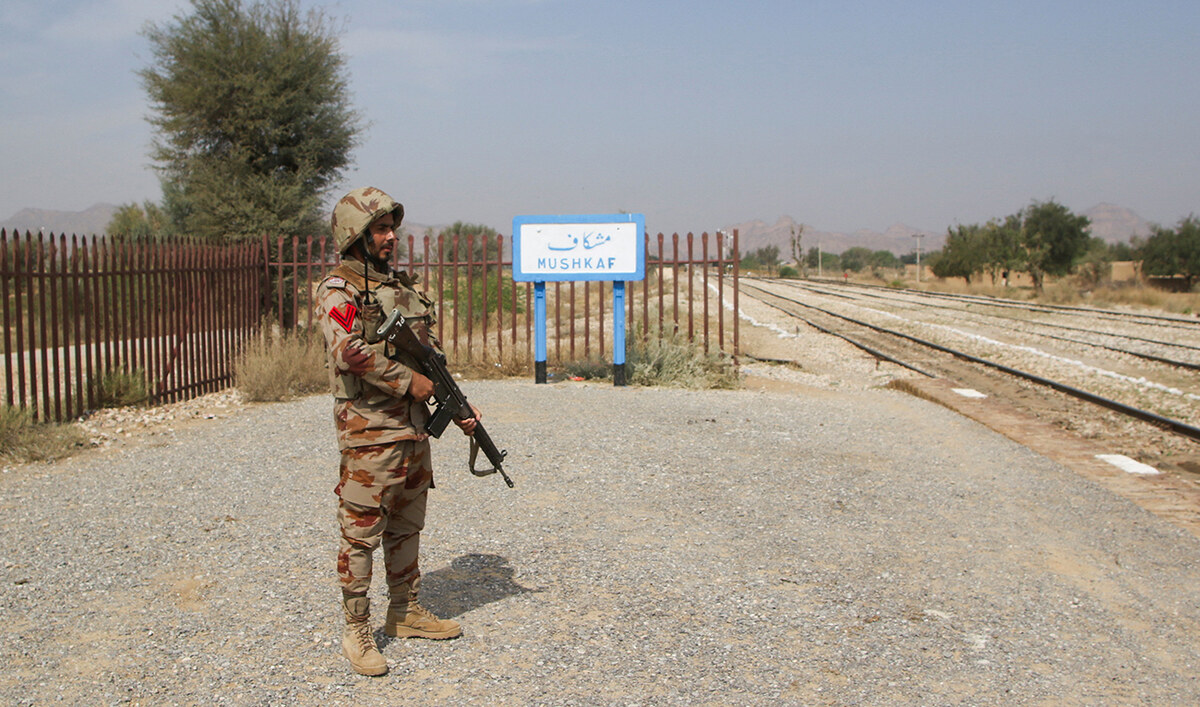PESHAWAR: Jailed former prime minister Imran Khan will neither accept a “deal,” nor will he leave Pakistan to live a comfortable life abroad, a senior member of Khan’s party said on Saturday.
Khan, who was sentenced to three years in prison in August in a case involving the sale of state gifts, faces a slew of cases registered against him following his ouster in a parliamentary no-trust vote in April 2022.
Pakistan’s election regulator this week also barred his Pakistan Tehreek-e-Insaf (PTI) party from using the cricket bat symbol on ballot papers, depriving it of a vital campaign tool in a nation where adult literacy rates lag.
The ex-premier alleges that the caretaker government and the military are colluding with dynastic parties that have long dominated the country to crush his movement and prevent him from running for office. The government and the military deny it.
In an exclusive interview with Arab News, Taimur Saleem Jhagra, a senior PTI figure and a former provincial finance minister, said the ex-premier would not leave the country and continue his struggle for a “fairer and better state.”
“The Imran Khan I know, as he said, will not accept a deal, will not accept to leave Pakistan to make his life more comfortable,” he said. “Imran Khan will continue his struggle for the political rights of ordinary Pakistanis and for a fairer and better state till his last day.”
The fate of politicians in Pakistan has historically rested on their relationship with the country’s powerful military, which has directly ruled the South Asian nation on several occasions.
Since his ouster, Khan, who rose to power in 2018 with what political analysts say was the support of the military, has maintained the generals had conspired with Washington and his political rivals to end his term. The military, Khan’s opponents and Washington have denied the claims.
In the months after his ouster, the ex-premier was able to draw huge crowds at rallies where he publicly touted diplomatic documents as evidence for his claims, waging an unprecedented campaign of defiance against the military.
His brief arrest in a graft case on May 9 sparked unrest in the South Asian country that resulted in a crackdown on Khan’s PTI party, which saw several senior PTI figures defect, be arrested or driven underground.
While the Pakistani government denies pursuing any policy aimed at keeping Khan or the PTI out of elections, Prime Minister Anwaar-ul-Haq Kakar clarified in a televised interview on Saturday that those involved in May 9 riots and attacks on state installations would have to “face the law.”
Jhagra said the recent actions against their candidates and lawyers only increased his party’s popularity among the masses.
“Many people have left the party because of this crackdown, some voluntarily and some literally being forced after being disappeared for days or weeks. Even those who left voluntarily did not leave happily,” he told Arab News.
“The government is campaigning for us, every person they put in jail, every lawyer whose paper they tear, every lawyer that they abuse, every time and try to impose their will on the people of Pakistan, they campaign for us.”
He maintained that Khan was their only leader as he denied reports about the stage being set for PTI vice-chairman Shah Mahmood Qureshi to lead the party in the upcoming elections.
“Imran Khan is, was and will be the leader of this party and the biggest political leader, certainly in the modern political history of Pakistan,” he said.
“Shah Mahmood Qureshi, our vice-chairman, has shown incredible courage in jail and I refuse to believe that he is part of a plan with anyone... to try and take over the party.”
To a question whether Khan was in favor of talks with other political parties or an alliance, the PTI leader said they could only have talks on the elections and democracy. “Let the best man or woman win, and then let them lead Pakistan to progress in a mature political environment,” he said.
About the allegations of his party’s support for the resettlement of Pakistani Taliban militants in the country’s tribal northwest, Jhagra said it was a “joint civil-military decision” and that civilian governments in Pakistan had a limited say in this regard.
“The tackling of militancy is a joint civil-military decision. It is not just a decision of any political party. And traditionally political parties and political governments have had only a certain amount of space in making these decisions,” he told Arab News.
“So, I think the accusation against PTI of basically going with a strategy of resettling militants in KP (Khyber Pakhtunkhwa) or Pakistan was just part of political campaigns.”
























